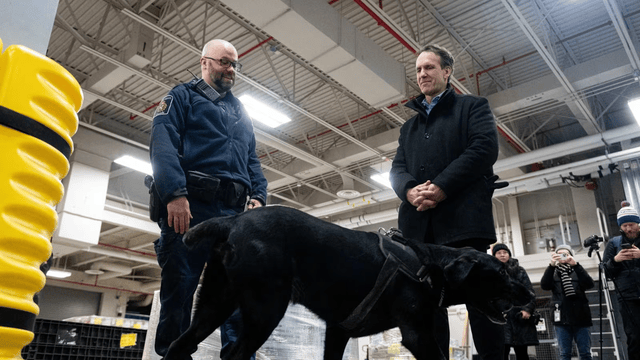
Prime Minister Mark Carney’s government has put forward a new bill aimed at making trade easier and helping workers move more freely across Canada. CTV
Prime Minister Mark Carney’s government introduced a new bill on Friday. The goal is to make trade and work easier across provinces. It also wants to speed up big projects across Canada.
Carney called it the “One Canadian Economy” bill. He said it will align federal and provincial rules. “This will let goods and services move freely across Canada,” he added. This will help businesses grow and lower costs for shoppers.
Trade barriers cost Canadians extra
Right now, rules differ across provinces. They protect local jobs but make goods and services 7.8% to 14.5% more expensive. The bill aims to fix that by making one set of rules for all provinces and territories.
The bill is short, just under 20 pages. It includes two new laws: one on free trade and labor movement, and one on building major projects. The bill is called Bill C-5.
Dominic LeBlanc, the Minister for Canada-U.S. Trade and Intergovernmental Affairs, presented the bill alongside Carney on Parliament Hill.
Carney said, “Canada used to build big things, but now it’s too hard, and this slows us down.”
One rule for products and services
Bill C-5 will make federal rules match provincial ones. For example, if food meets one province’s organic rules, it will be accepted everywhere. The same goes for energy ratings on washing machines.
This will help businesses sell products nationwide and give consumers more choices.
Making it easier for workers to move
The bill will also let workers use their provincial licenses to work in other parts of Canada without extra hassle.
A doctor or tradesperson licensed in one province can work elsewhere more easily. The government aims to speed up license recognition to just 30 days.
This will give employers a bigger pool of workers.
Faster approval for big projects
The bill also changes how major projects get approved. The federal government will decide if a project is in Canada’s national interest.
The decision will consider Indigenous and provincial views. Projects must help Canada’s economy, security, Indigenous people, and environment.
Carney wants to cut approval time from five years to two years. The bill plans a “two-key” system to simplify paperwork and permits.
Officials say the bill could unlock many new projects, but it’s too early to say how many or their value.
Concerns and responses
Some question how provinces and Indigenous groups will influence project decisions. Carney said no project will be forced on a province. He wants agreement and Indigenous involvement.
Conservative Leader Pierre Poilievre said the bill is a small step, not bold enough. He wants to discuss with his party before deciding on support.
Poilievre said many big trade barriers still exist because provinces haven’t been pushed hard to remove them.
More trade barriers to be removed by July
The government plans to drop more federal trade exceptions by July 2025. Carney promised to remove all federal limits on internal trade.
Some exceptions stay due to national security or shared laws with provinces. Officials continue to check which can be lifted.
Canada moves over $530 billion in goods and services across provinces yearly, nearly 20% of its economy. Removing trade barriers could add $200 billion to the economy.
With Parliament closing soon for summer, Carney said passing this bill is a top priority. He said Canada expects Parliament to work longer if needed to pass the law.















